Efficient replacement for monorail: key advantages of uST complex
There are quite a number of advantages of monorail transport on paper: low noise level, uninterrupted operation, safety, and environmental friendliness. It would seem to be an optimal option for the city. However, there are not so many monorails in the world. In our section "Effective Solutions" you will learn why this is the case and what can be used as a substitute for them.
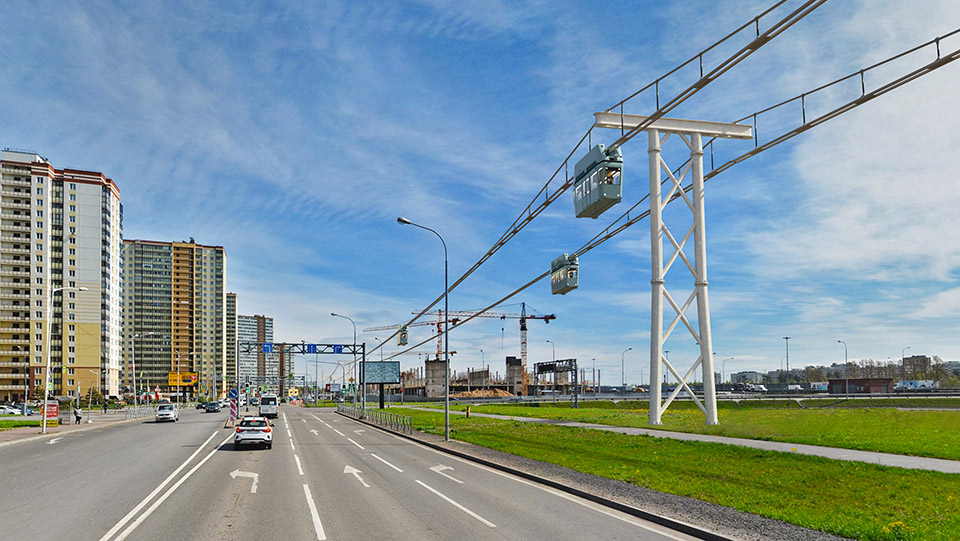
Three main problems of monorail
Dan Malouff, a transportation planner for Arlington and an adjunct professor at George Washington University (USA), identified several problems that prevent monorails from becoming successful. These are:
- high cost of construction compared to ground level transport;
- complicated and slow switching of rolling stock from one track to another;
- expensive maintenance.
It is also impossible to significantly increase throughput capacity of the monorail, because the speed of the rolling stock is low and the peculiarities of the design do not allow to have even two branches. There is only one line, back and forth.
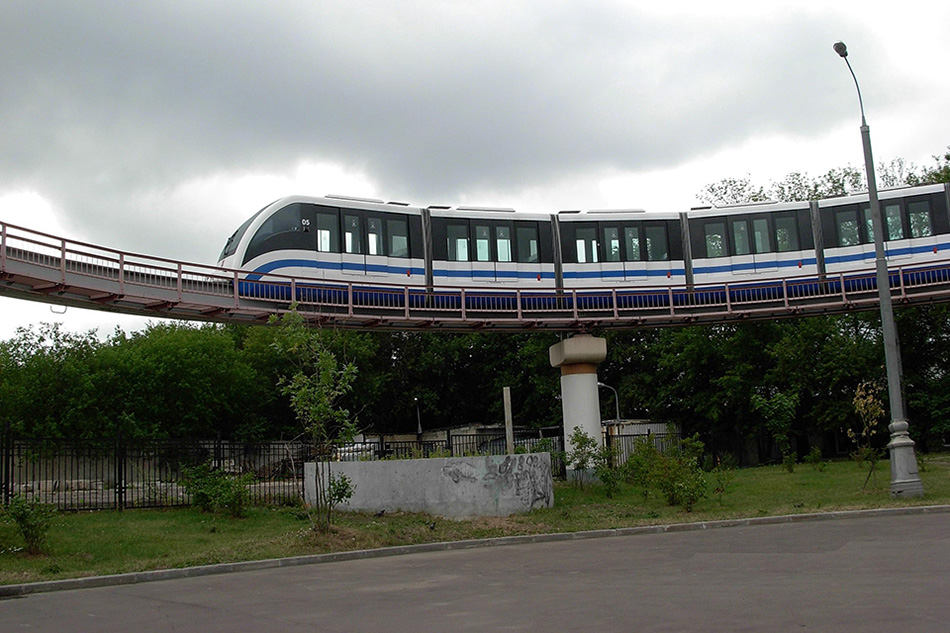
The first monorail in the CIS, the Moscow monorail, faced just such challenges. Now it is not profitable, and the city authorities are thinking about options for its replacement.
Passengers feel cold, rolling stock is aging
The Moscow monorail is a unique project and the first attempt in the CIS to build a transport of the future. Work on it was completed in the 2000s.
Although the length of the route on which the monorail train runs was only 4.7 kilometers, its maintenance turned out to be very expensive: about $800 million a year.
This is a big amount, considering that only 39 people a day use the monorail on a regular basis. Such unpopularity is simply explained: it is provoked by low speed, long intervals between trains, uncomfortable platforms that are windblown, and old cars.
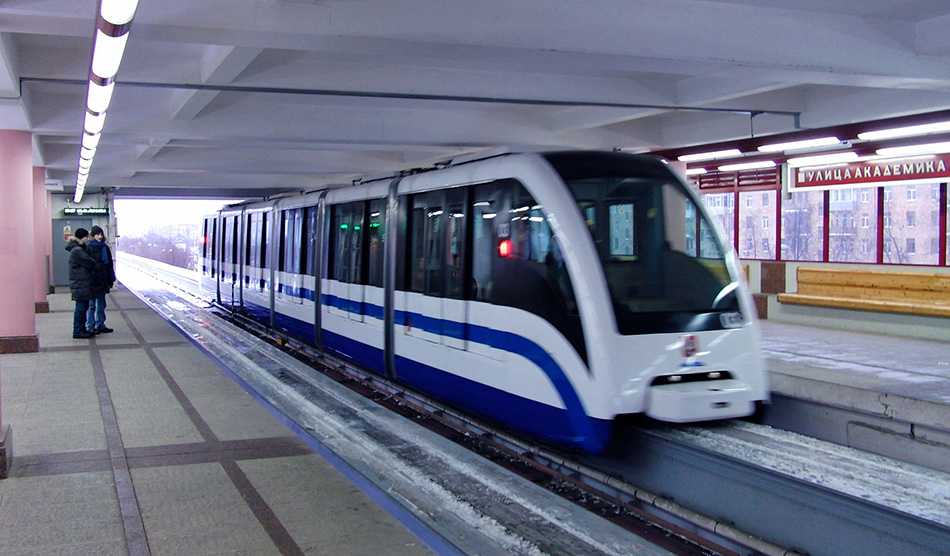
The latter is a critical factor. The monorail is almost always created by individual order. Therefore, cars for the Moscow monorail are not produced anywhere else. Hence, the reduction of old rolling stock and simply huge expenses for the development and production of a new rolling stock is a reality.
It should be noted that this fate has befallen many monorails around the world. For example, plans to develop a monorail in the Australian city of Seattle were canceled at a referendum because of a very high cost. In Mumbai, India, the future of the local monorail was jeopardized because of problems with the repair of rolling stock and non-profitability.
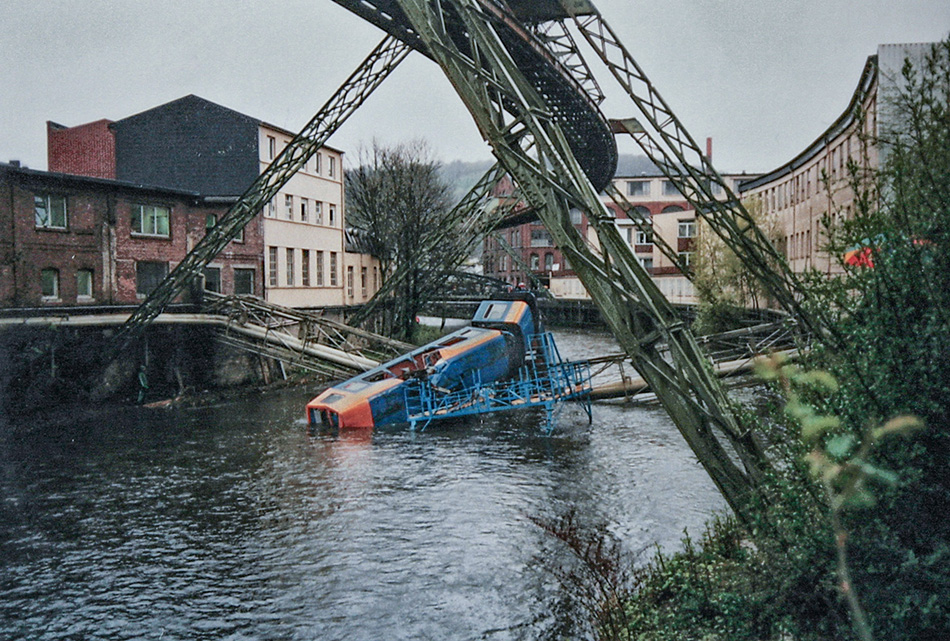
In addition to financial issues, monorails have safety problems. It is quite problematic to leave the train in case of a breakdown, taking into account the considerable elevation of the overpass above the ground. In addition, under certain conditions the train can derail, as it happened with the monorail in Wuppertal (Germany). On April 12, 1999, a train fell into a river because of construction brackets left on the tracks. The accident killed five passengers and injured 47 others.
Less-costly, more environmentally friendly and safer
On average, the cost of 1 km of monorail systems is $41.3 million. For the uST transport and infrastructure complex, this figure is several times less, and it depends on the length of the track, the terrain, the number of uPods on the line and other conditions. But still the cost will be lower than that of a kilometer of ropeway.
The rolling stock of the complex includes unmanned electric vehicles on steel wheels, equipped with their own energy storage units. Therefore, even in the event of a power outage, they will be able to reach the station on their own.
The stations themselves can be made enclosed and heated, with stores and pharmacies located in them. Monorail boarding platforms, on the contrary, are open to all winds. Waiting for trains on them in northern latitudes is extremely uncomfortable.
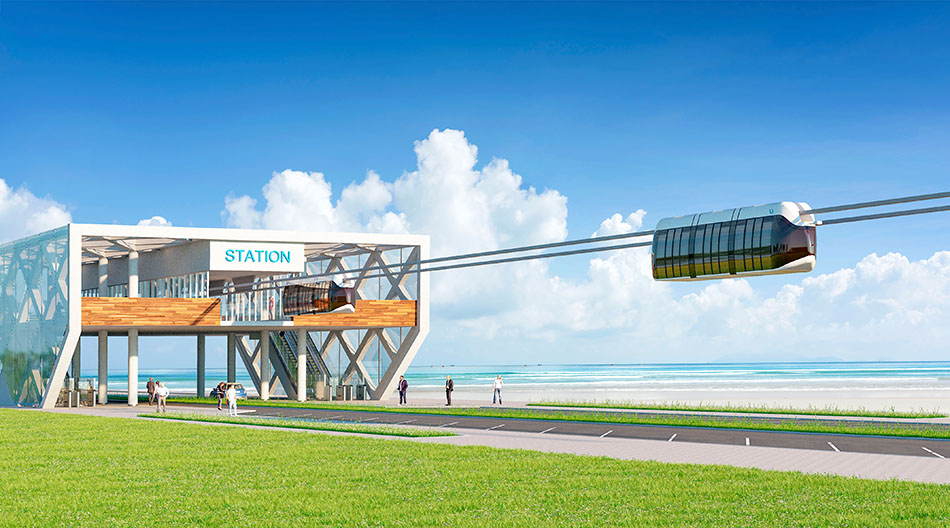
And it usually takes quite a long time to wait. Monorail is a slow mode of transport: the average speed is 30 km/h and the maximum one is about 75 km/h. By comparison, electric rail cars can reach speeds of up to 150 km/h. There is also a special solution – uST high-speed transport which can accelerate up to 500 km/h.
The uST complex has a large capacity: during a rush hour it can serve up to 50,000 passengers. Adaptation of the complex to the passenger flow through automated control systems allows to avoid crowding at the stations.
Unlike massive concrete overpasses for monorail trains, the uST complex requires minimal land acquisition. It does not disturb the landscape and easily fits into the urban infrastructure.
Due to the specifics of its design, the monorail requires more materials, including non-ferrous metals. The uST complex, on the contrary, has a low level of resource intensity.
Another advantage of the uST transportation and infrastructure complex is reliability and safety. The designers have minimized the risk of accidents.
Thus, each wheel of uPods is equipped with an anti-derailment system, and they themselves maintain constant data exchange on the line. This excludes the risk of accidents when the vehicles are moving and stopping.
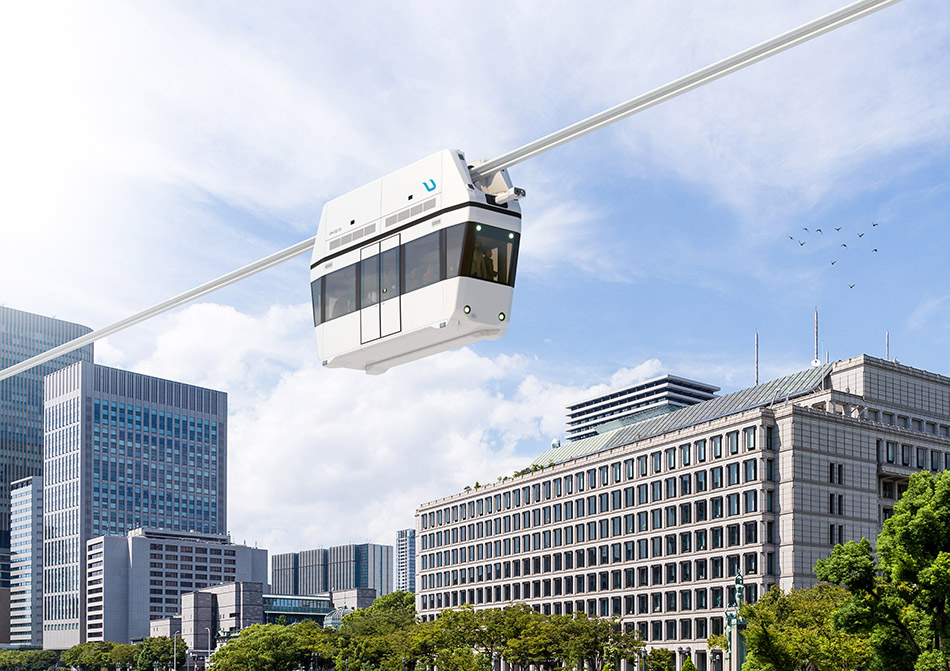
Pre-tensioning of the rails solves the problem of temperature deformations and allows to operate the transport at abnormally high and low temperatures.
Also, unlike the monorail, the uST transport and infrastructure complex does not affect the nature. The thing is that the monorail train moves on rubber wheels, the wear products of which are harmful to the environment. The uST complex includes electric cars on steel wheels.
The low cost of erecting and operating the uST overpass-type transport and infrastructure complex allows for low travel fares, excludes the need for subsidies, and results in a quick payback period.
More news
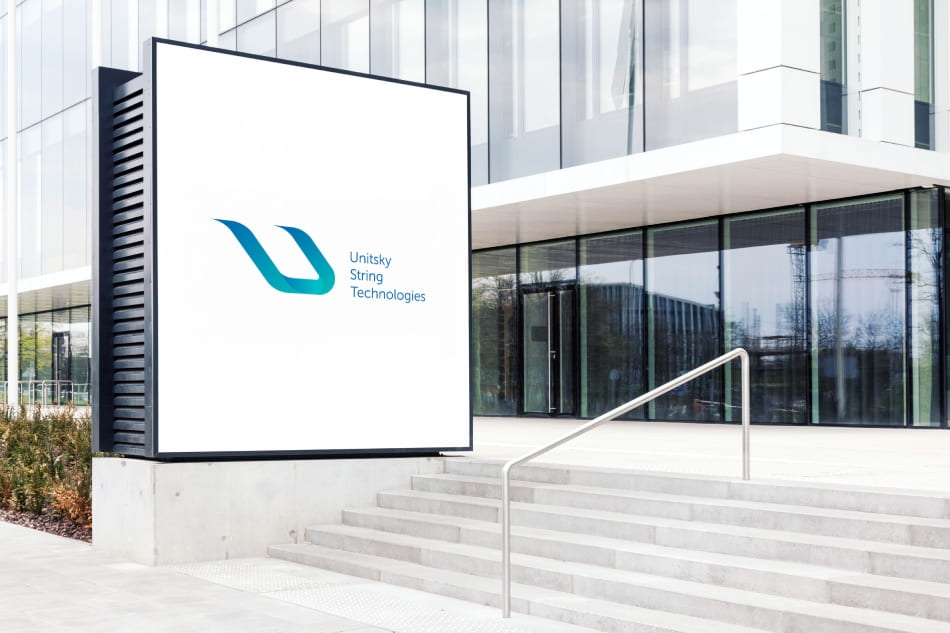
News
5 December 2024
UST Inc. Received a New Certificate of Conformity
Unitsky String Technologies Inc. extended the certificate of conformity
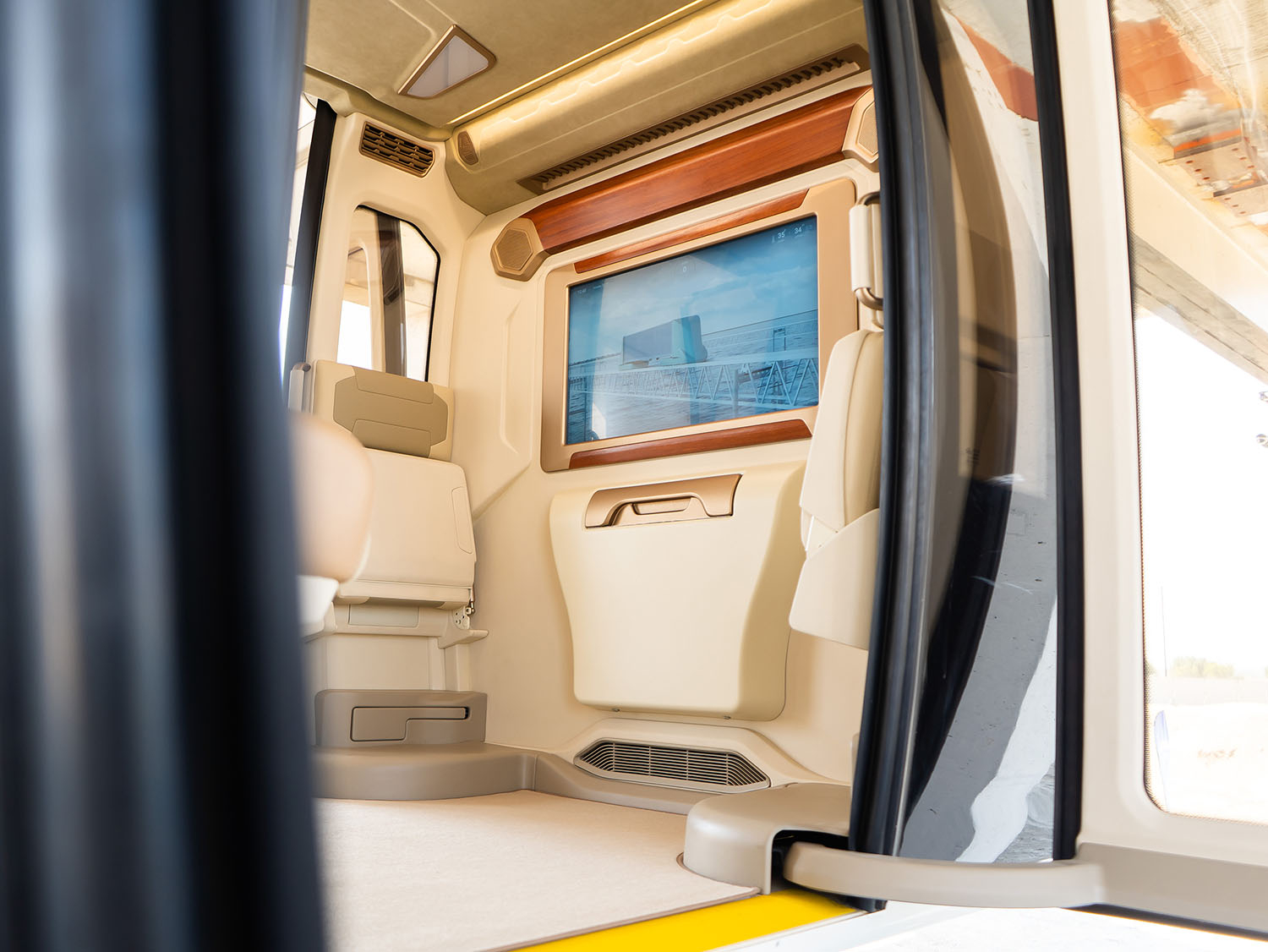
News
26 November 2020
Unitsky String Technologies Inc. Successfully Completes the Construction of an Elevated Transport Complex in the UAE
United Arab Emirates — On November 26, 2020, the company completed an innovative transport complex at the Research, Technology and Innovation Park (SRTIP) in the Emirate of Sharjah.
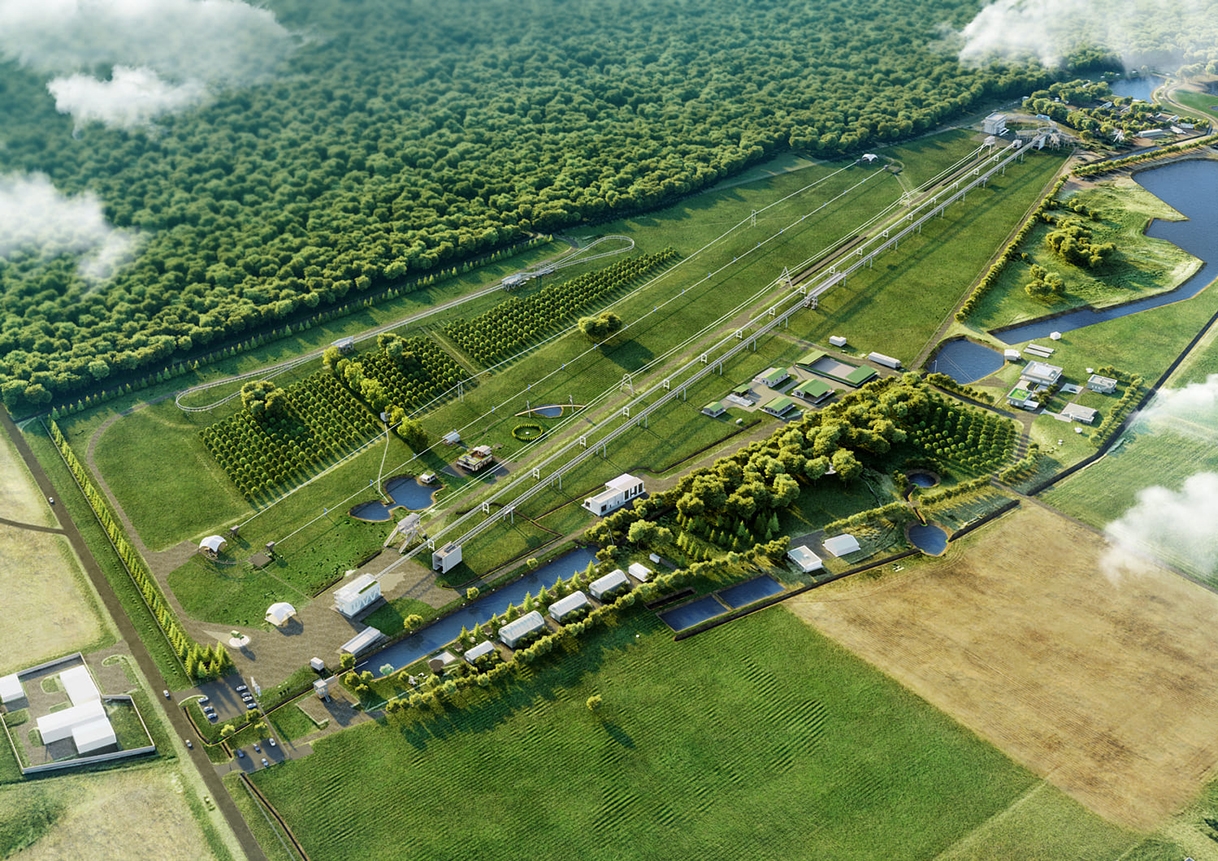
News
17 May 2023
UST Inc. Keeps Working on New Tracks in the EcoTechnoPark
The 6th and 7th lines of uST Transport and Infrastructure Solutions for heavy rolling stock weighing up to 60 tons are being designed in the EcoTechnoPark.

